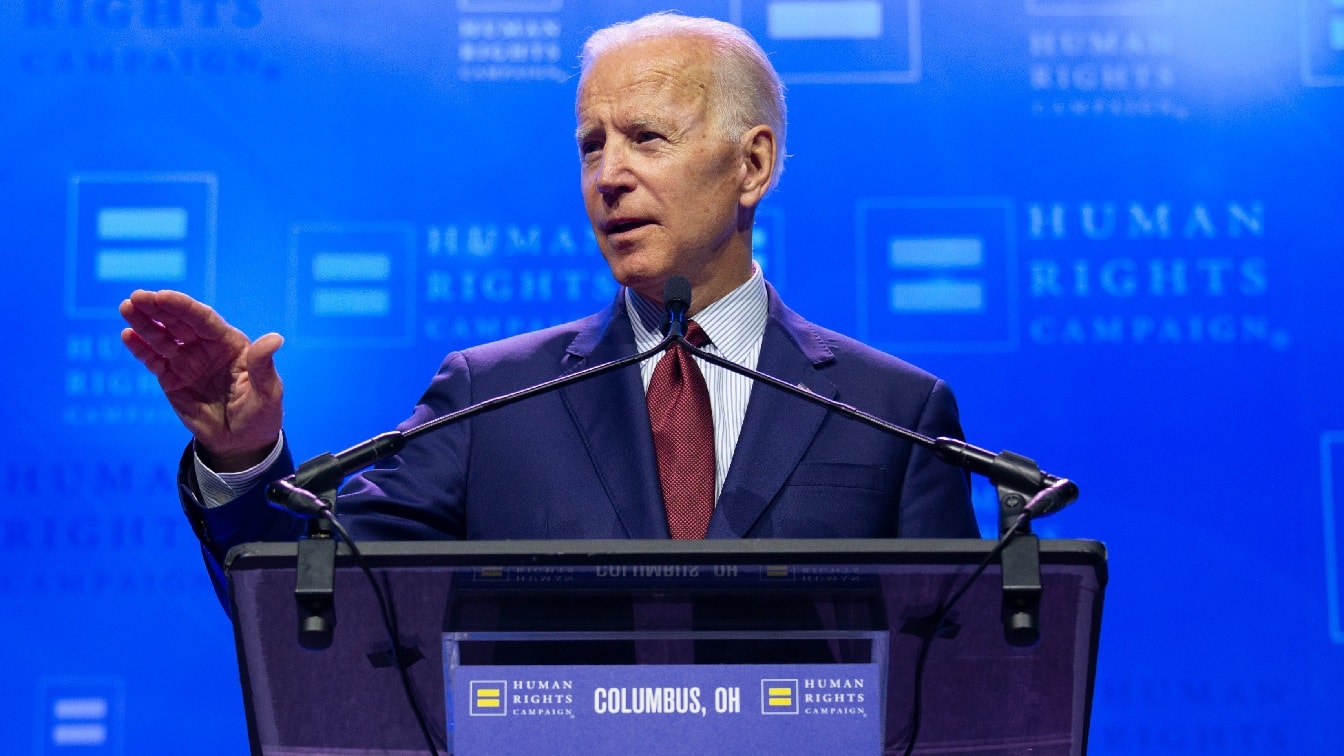President Biden is expected to make a decision today regarding student loan forgiveness. He should cancel all student loan debt.
Student loan repayments have been on hold, after four consecutive pauses, since COVID tanked the economy. But with the current repayment pause scheduled to expire on August 31, Biden is faced with a pressing choice. Continue the pause. Cancel repayment in whole. Cancel repayment in part. Demand borrowers repay in full.
Exploring Student Debt Possibilities
The going rumor is that Biden will forgive $10,000 for borrowers with an income below $125,000. The numbers are quite arbitrary, of course – and happen to be roughly consistent with promises Biden made on the campaign trail. “We should forgive a minimum of $10,000/person of federal student loans, as proposed by Senator Warren and colleagues,” Biden tweeted, desperate to court progressives, during his presidential campaign.
If Biden indeed cancels $10k, his administration will tout the move as a progressive win; certainly, $10k in loan forgiveness is a step in the right direction – but it doesn’t go even close to far enough. Biden should cancel all student loan debt, because, as he tweeted on the campaign trail, “young people and other student debt holders bore the brunt of the last crisis.”
Biden’s right about that – young people did take a shellacking during The Great Recession – as a recent paper from the National Bureau of Economic Research, which refers to recent graduates as “The Lost Generation” on account of their meager job prospects, demonstrates. Here’s the abstract from the 50-page NBER paper, written by Jesse Rothstein and titled “The Lost Generation? Labor Market Outcomes For Post Great Recession Entrants.”
“I study cohort patterns in the labor market outcomes of recent college graduates, examining changes surrounding the Great Recession. Recession entrants have lower wages and employment than those of earlier cohorts; more recent cohorts’ employment is even lower, but the newest entrants’ wages have risen. I relate these changes to ‘scarring’ effects of initial conditions. I demonstrate that adverse early conditions permanently reduce new entrants’ employment probabilities. I also replicate earlier results of medium-term scarring effects on wages that fade out by the early 30s. But scarring cannot account for the employment collapse for recent cohorts. There was a dramatic negative structural break in college graduates’ employment rates, beginning around the 2005 entry cohort, that shows no sign of abating.”
Twitter user James Medlock, who focuses on labor policy, proposed in light of the NBER paper that “one-time student loan forgiveness as payback for Great Recession policy mistakes is an underrated argument.”
Pondering Student Debt and Forgiveness
I’ll go a step further, a step more abstract: student loans should be forgiven (in their entirety) on account of recent graduates being indoctrinated with a common, pervasive philosophy – that “education pays,” that investing in your education would be rewarded financially in the long-term – which turned out to be objectively false.
Said another way, students didn’t just whimsically decide to take out heaps of student loans for the sake of going to college and grad school to party or socialize. It wasn’t reckless financial gambling. It was a strategic decision, made in adherence to the common wisdom of the day; by the common wisdom of society at large, going to school and investing in your education was the prudent thing to do. Kids, especially kids who grew up in the booming 80s and 90s, were told incessantly – by parents, teachers, guidance counselors, coaches – that you’ve gotta go to college.
Too expensive? Don’t worry about it. You’ll improve your earning potential so markedly that it won’t matter, you’ll be able to pay the loans back, no problem. Well, nearly 40 million Americans who couldn’t pay for college upfront honored that dogmatic advice, taking out direct loans. Now, “3 million borrowers are in deferment; 25 million are in forbearance; and a stunning 5 million are in default.” Only half a million are repaying their loans as planned. “So, ten times as many direct loan borrowers are in default rather than in repayment.”
And, as the NBER paper indicates, recent graduates are not failing to repay their loans out of some generational apathy or responsibility – but rather because their opportunities are atrocious, not nearly sufficient to compensate for the investments they made in their education.
Accordingly, Biden should cancel all student debt, simply on account that recent graduates did exactly what they were told to do. They went to school. They graduated. They looked for work to repay their loans. Only there was no work – in part, because of policy decisions the people who lent graduates the money (plus interest) made. That’s a conflict of interest. Regardless, the government is never collecting on the majority of their outstanding student loan debt.
Expert Biography: Harrison Kass is the Senior Editor at 19FortyFive. An attorney, pilot, guitarist, and minor pro hockey player, he joined the US Air Force as a Pilot Trainee but was medically discharged. Harrison holds a BA from Lake Forest College, a JD from the University of Oregon, and an MA from New York University. He lives in Oregon and listens to Dokken. Follow him on Twitter @harrison_kass.

